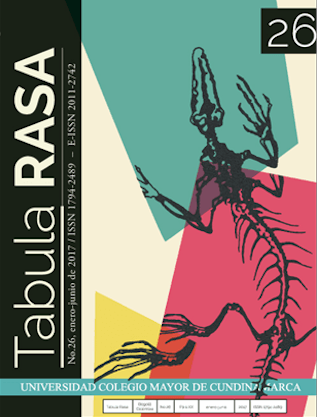Engagement patterns and the question of indigenization: euro-american characters in Ghost Singer and Garden in the Dunes.
Patrones de relacionamiento y la cuestión de la indigenización : personajes euroestadounidenses en Ghost Singer y Garden in the Dunes.
Show authors biography
This paper examines the different patterns of engagement that Euro American characters conduct with Indigenous people and culture in the two novels by Native American authors Anna Lee Walters (Ghost Singer) and Leslie Marmon Silko (Gardens in the Dunes). It utilizes literary analysis focusing on characterization in the two novels in order to dissect and corroborate the different ways that the primary Euro American characters in the novels perceive and understand Indigenous people and culture and the behavior that results from such perception and understanding. It argues that fruitful engagement by these characters does not transpire because they employ dualistic and dialectic modes of engagement instead of the dialogic one, highlighting the need for settler society living in the colonized world to embrace a dialogic pattern of engagement founded upon equality, respect, and relationality. It demonstrates the success of the dialogic mode of engagement performed by Indigenous characters in the novel as they cope with and have to live amidst pressures and challenges to their cultural and spiritual integrity in the midst of the dominant society. The idea of indigenization is a crucial concept that should encourage the settler communities to find the most viable mode of living on Indigenous lands.
Article visits 153 | PDF visits 46
Downloads
- Adamson, J. (2001). Reinventing nature: Leslie Marmon Silko’s critique of Euro American “Nature Talk.” American Indian Literature, Environmental Justice, and Ecocriticism: The Middle Place. Tucson: Arizona University Press.
- Aigner-Alvarez, E. (1996). Artifacts and written history: Freeing the terminal Indian in Anna Lee Walter’s Ghost Singer. Studies in American Indian Literatures, 8, 45-59.
- Arnold, E. L. (2000). Listening to the spirits: An interview with Leslie Marmon Silko. Conversations with Leslie Marmon Silko. Jackson: Mississippi University Press.
- Batalla, G. B. (1996). México profundo: Reclaiming a civilization. Austin: Texas University Press.
- Cummings, D. K. (2000). Setting history: Understanding Leslie Marmon Silko’s Ceremony, Storyteller, Almanac of the Dead, and Gardens in the Dunes. Studies in American Indian Literatures, 12(4), 65-90.
- Echo-Hawk, W. (2012). In the Courts of the Conqueror: The 10 Worst Indian Law Cases Ever Decided. Golden, Colorado: Fulcrum.
- Fiesta, M. J. (1993). Solving mysteries of culture and self: Anita and Naspah in Anna Lee Walter’s “Ghost Singer.” American Indian Quarterly, 17(3), 370-378.
- Fitz, B. E. (2004). Silko: Writing Storyteller and Medicine Woman. Norman: Oklahoma University Press.
- Fleck, R. F. (1997). Introduction. Critical perspectives on Native American fiction. Pueblo, CO: Passeggiata.
- Graber, D. J. (2000). Anna Lee Walters’s ‘Ghost Singer’ links Native diaspora in time and space. Wicazo Sa Review, 15(2), 7-16.
- Huffstetler, E. (2002). Spirit armies and ghost dancers: The dialogic nature of American Indian resistance. Studies in American Indian Literatures, 12(4), 1-17.
- Kohler, A. (2002). “Our human nature, our human spirit, wants no boundaries”: Leslie Marmon Silko’s ‘Gardens in the Dunes’ and the concept of global fiction. Amerikastudien / American Studies, 47(2), 237-244.
- Moore, D. L. (1994). Decolonializing criticism: Reading dialectics and dialogics in Native American literatures. Studies in American Indian Literatures, 6(4), 7-35.
- Regier, A. M. (1999). Material meeting points of self and other: Fetish discourses and Leslie Marmon Silko’s evolving conception of cross-cultural narrative. In L. K. Barnett & J. L. Thorson (Eds), Leslie Marmon Silko: A collection of critical essays. Albuquerque: New Mexico University Press.
- Silko, L. M. (1999). Gardens in the dunes. New York: Simon and Schuster.
- Smith, L. T. (2008). Decolonizing methodologies. New York: Zed.
- St. Clair, J. (1994). Uneasy ethnocentrism: Recent works of Allen, Silko, and Hogan. Studies in American Indian Literatures, 26(1), 83-98.
- Tillet, R. (2005). ‘Resting in peace, not in pieces’: The concerns of the living dead in Anne Walters’ Ghost Singer. Studies in American Indian Literatures, 17(3), 85-144.
- Walters, A. L. (1988). Ghost singer. Albuquerque: New Mexico University Press.




